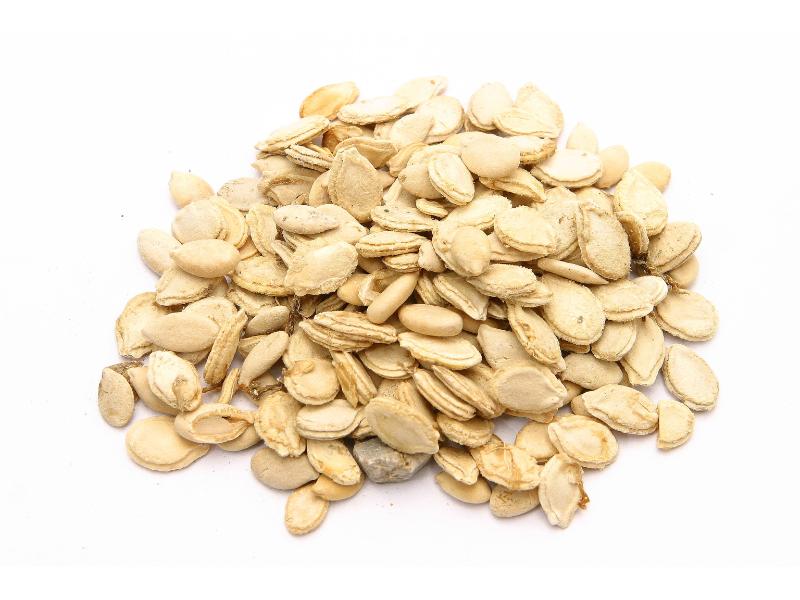Search in medicinals
Benincasae Semen
Winter melon seed
冬瓜子 〔冬瓜子〕 dōng guā zǐ

Alternate English names: white gourd seed wax gourd seed
Alternate Chinese names: 瓜子 guā zǐ; 瓜犀 guā xī; 冬瓜仁 dōng guā rén; 瓜瓣2 guā bàn; 白瓜子 bái guā zǐ
Kingdom: Plant
Origin in PRC Pharmacopoeia: Benincasa hispida (Thunb.) Cogn. (PRC Pharmacopoeia)
Origin in unofficial sources: Benincasa hispida (Thunb.) Cogn.*; Benincasa cerifera Savi [= B. hispida (Thunb.) Cogn.]
Use: Medicinal
Category: Water-disinhibiting dampness-percolating agents / Water-disinhibiting swelling-dispersing agents
Properties: Sweet; cold.
Channel entry: Lung, stomach, large intestine, and small intestine channels.
Actions and indications:
- Clears heat and transforms phlegm, expels pus and disperses welling-abscesses: Lung heat cough, lung welling-abscesses, large intestinal welling-abscesses.
- Clears heat and disinhibits dampness: White turbidity, vaginal discharge, and inhibited urination.
Dosage and method: Oral: 9–15g, as a decoction.
Warnings: Do not use for spleen and stomach cold-damp with thin sloppy stool.
Product description: The dried seed is flat, ovate or elliptical, about 1 cm long and 6 mm wide. The exterior surface is a brownish white, sometimes with fissures. One end is pointed and the other blunt, and at the pointed end are two small protuberances, the smaller one being the hilum and the larger one bearing the micropyle. The margin is smooth or has a protruding rim on either side. When the seed coat is peeled off, the white interior can be seen.
Quality: The best quality seeds are clean, large, and white.
Production area: Most parts of China, with production highest in Sìchuān, Zhèjiāng, Jiāngsū, Hénán, Héběi, ānhuī.
Etymology: The name dōng guā zǐ 冬瓜子, literally winter gourd seed,
indicates that it is a gourd available in winter.